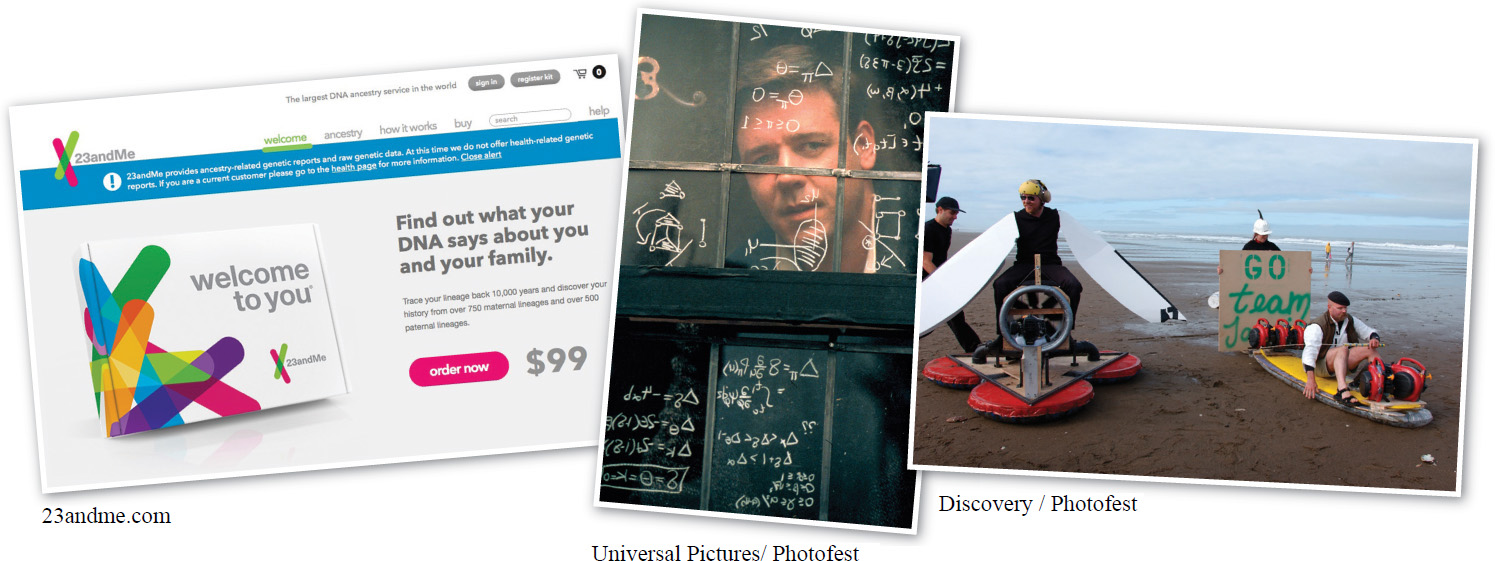1.2: Biological literacy is essential in the modern world.
A brief glance at any magazine or newspaper will reveal just how much scientific literacy has become a necessity (FIGURE 1-2). Many important health, social, medical, political, economic, and legal issues pivot on complex scientific data and theories. For example, why are unsaturated fats healthier for you than saturated fats? And why do allergies strike children from clean homes more than children from dirty homes? And why do new agricultural pests appear faster than new pesticides?

As you read and study this book, you will be developing biological literacy, the ability to (1) use the process of scientific inquiry to think creatively about real-
5
TAKE-HOME MESSAGE 1.2
Biological issues permeate all aspects of our lives. To make wise decisions, it is essential for individuals and societies to attain biological literacy.
Give two examples of biological issues that significantly affect our lives.